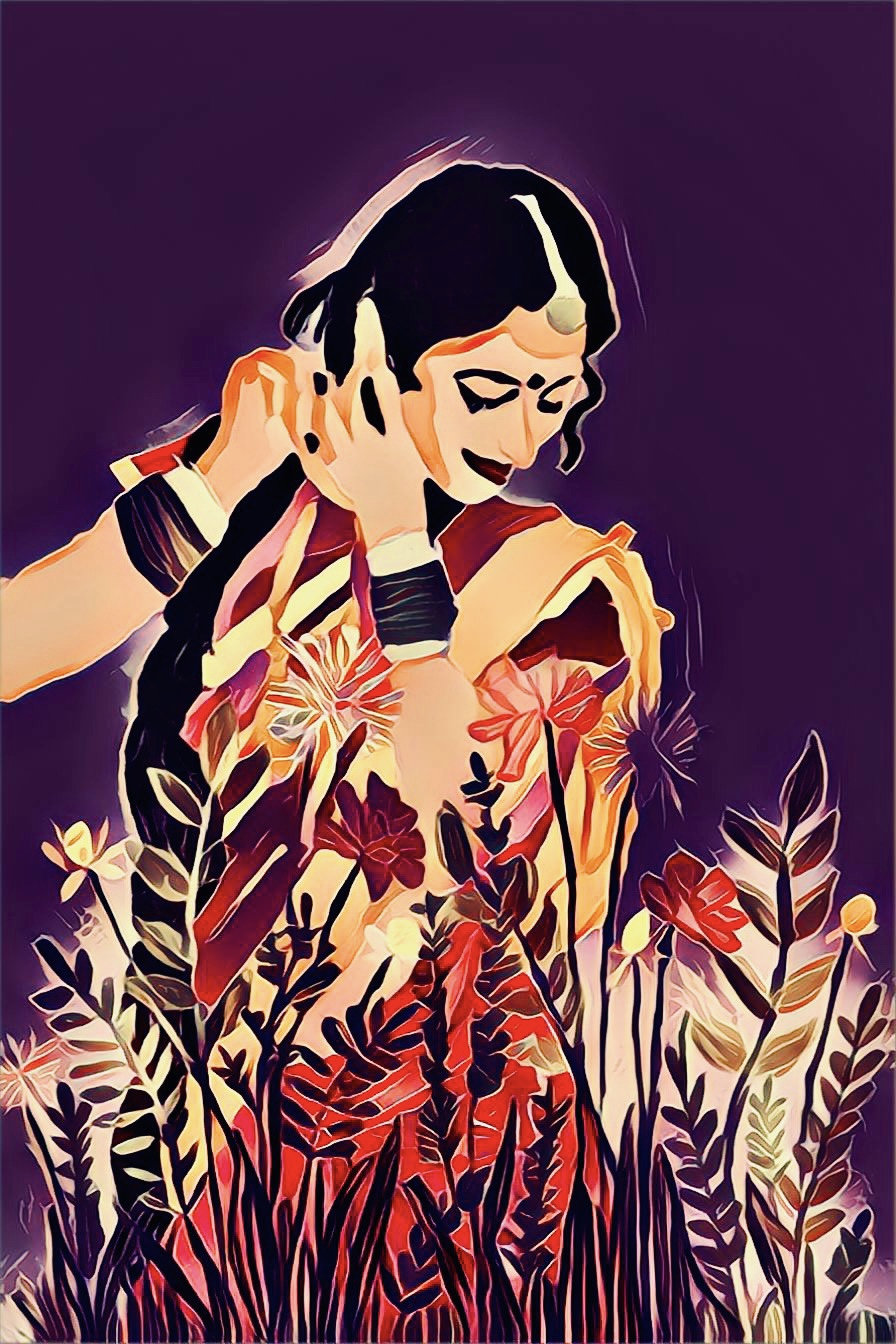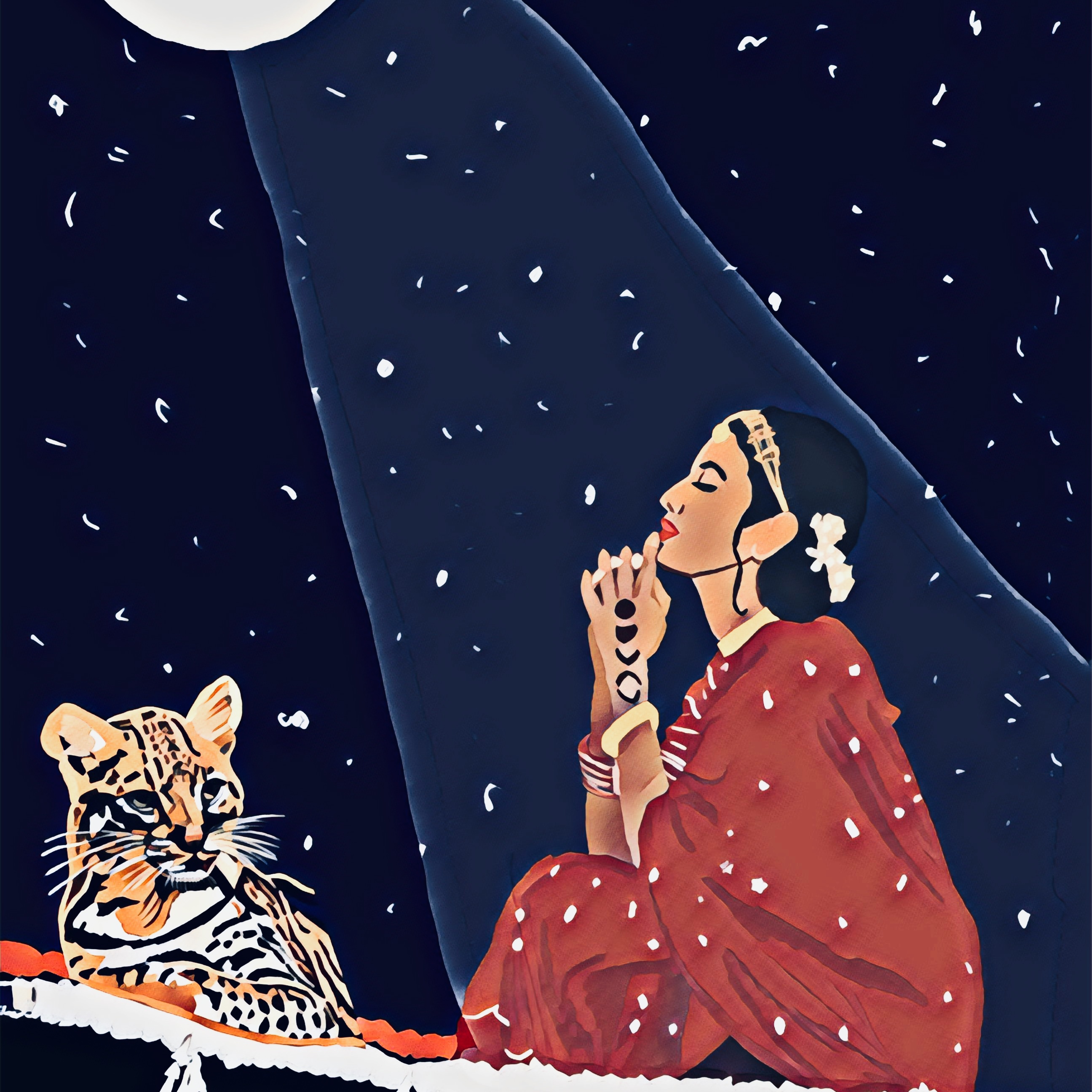- By The Zoya Project
- November 10, 2022
- 0 comments
I’ve loved Delhi, ever since I started studying history in middle school. Its culture, its history, the small noisy haunts with its plethora of fragrances and smells and the hidden ones no one knows about. But being the blunt rather acerbic person I am, I tend to call a spade a spade, and I have to say there are frequent times when I feel the need to escape from the dirty city, the crazy traffic and the people. And in those times I find refuge in Aligarh.
Aligarh is where my mother grew up. It’s a university town where my grandparents have spent the majority of their lives in a little pink villa they built and pioneered for themselves and named Aimun. A small corner of the world that belongs only to us and the team of stray kittens and puppies our age-old cook rescues and tries to hide (mostly unsuccessfully) from my grandmother. My mother then takes these little guests at Aimun back with her to Delhi. There is a small mango orchard and a front garden which Nani tends to every evening at 5 pm, walking around pruning her bougainvillea that grows coral and pale pink, white and fuchsia. She sits on the small white wooden swing that sits on the front lawn enjoying the fruits of her hard work, her salwar kameez slightly damp. At night she sits with Nana to watch the 9 pm news, after a long day of work at the Public School.
They’re an odd pair, two intellectuals but every time they talk to each other I can see how they’ve lasted 64 years. They’re unfailingly kind, generous and loving people. They’ve had colorful lives, so much so that Nana has written six books in Urdu about his travels and adventures. Perhaps it runs in the family.
I am convinced that a part of my Nana lives in my soul. I’ll make my way to him at 6 am when the rest of the house slumbers on. He and I sit, him reclined in his chair with a glass of freshly squeezed juice in his hands, and me at the stool below emptying out a liberal amount of lotion for his legs. As Aligarh wakes so does the past. I ask him to tell me a story, a story from his life.
And so he does…
1944
‘My father studied till high school. He didn’t have the liberty to study further at that time you see. But his math, his math was very good.’ My nana begins. His juice is clasped in one hand and a bowl of almonds lies on the table next to him. Today we sit in the entryway of Aimun. The pink and white walls ensconce us under a large arch doorway. My Nani’s garden stretches out in front of us. The grass is wet from the cold dew and there’s a slight chill as winter descends upon us. Her bonsais are flowering and the bougaenvillae grows in pastel pinks and corals. I take a second to imprint this moment in my mind. The few precious moments I get alone with him. Where the entire world centers on him, his youngest grandaughter and the stories only I will know with such intimacy that they will come alive in my mind.
‘My father was a big, tall hulk of a man. And he was a good man. But his temper was a fearsome thing to behold. His anger was easy to flare, and easily provoked. He used to believe that since he was so brilliant at math, his children would be too. It was unfortunate I suppose that my math skills were absolutely abysmal. When I added two plus two it would never be four. Every time the answer was incorrect his hand would come down and strike me. And what a big hand it was! It would come down upon my cheek with such force. So great was the fear of his anger that more often than not the little math I did know would end up being incorrect.
In his anger he would sometimes proclaim ‘Nikal jao mere ghar se!’ and promptly I would be standing outside the house.’
I begin to see the scene come alive as he sips on his juice gingerly. 13-year-old Ather Siddiqi standing outside the house in the galis of Saharanpur. His slim legs tremble as night descends. Around him fields of bright yellow mustard and barren roads that were filled with throngs of people when the sun was out. Sunsaan gali. Moonlight puddling in the hollows of his face as he stands alone outside. The story begins to come alive as my grandfather continues.
‘Kabhi kabhi maulvi sahab raat mein guzarte the toh he would see me and knock on the door, and he would wait until I was let back inside the house. One day in 1944 or 1945, my father told me once again to leave his house. And it reminded me of a famous Urdu couplet.
Tamaam umr issi aitiyaad mein guzari
Ki aashiyana kissi shakh e shajal par baar na ho
All my life I have spent ensuring that my nest does not become a burden on the branch. My self-respect, you see, has always been of the highest value to me. Even now. Ever since I was a young boy I have kept my self-respect on the highest pedestal. He really scolded me that day before standing me outside in the gali. I had the clothes on my back and two rupees in my pocket. The moment the door closed behind me I set off into the night.’
Here he pauses, popping a couple of almonds in his mouth. I imagine him, his white hair now black, his height diminished. A young boy once again, his hands stuffed in his pocket, clutching his coins in desperation, ambling through Saharanpur.
‘I traversed the quiet city for a bit before deciding on going to a friend’s house.’ Nana continues. His chair rocks back and forth slightly, his eyes drooping to a close as though he can see the dark alleyways of 1940’s Saharanpur through which he wandered. “But when I got to his haveli he was not there. I was stumped for a second. Where was I to go now? I knew, I had made up my mind and so I knew, that I couldn’t go back home. My self-respect would have taken a beating if I had to go back.”
There is a pause here. As though he is remembering that feeling. The glory of stories lies in their ability to take us back in time. It lets us wander the lanes of history and travel through those feelings that were once long forgotten.
“I decided to go towards the station. Meri khaala Dilli mein hoti thi. So I bought a ticket, uss zamaane mein Dilli ka ticket, ek/dedh rupai ka hota tha. My mother knew how I was and she had heard my argument with my father, so she sent out one of my siblings to check on me. To see where I had gone. My brother went looking for me in all of Saharanpur until finally he came to check the station. I saw him there. He was looking for me while I hid in the compartment of the train I was sitting in. As soon as he would come near I would duck under the window and crouch to the floor, before peeking back up to see where he had gone. At any rate, I saw him get smaller and smaller as the train picked up speed. Khata khat khata khat khata khat karke, the train pulled into Dilli Junction at 10 pm that night.
I didn’t know a lot back then. This was a vast new city, completely foreign to me. I had only a little idea of where to go – Sadar.”
Here I stop him. I a resident of Delhi for almost my entire life, born and raised have no clue about Sadar. I have never been. So I ask him where he means.
“Sadar.” He repeats. “Sadar Bazaar. Near Puraani Dilli, Chandni Chowk se thodi hi doori par hai Sadar.”
He doesn’t wait for me to dive back into his story. “There was a tonga-waala outside the station, he was hawking his price. So I paid him 2 annas and got in and asked him to take me to Sadar Bazaar. I got to the main street of the bazaar. At that time the crowds were much less than what they would be today. I asked the few people around about my Khaalu but no one knew of him, or the hotel he ran, there. The hotel he was running at the time was actually in the Cantt. and I had gone all the way to Sadar.”
I examine the way he says Delhi. It is not Dilli anymore as he says when we converse in Urdu. It is Dehli, the way he must have said it as a boy. Deh-lee. The ‘h’ curls on his mouth, tangible in this pronunciation.
“I was getting scared. Here I was alone, ajnabi shehr, aadhi raat ka vaqt aur kam umari. I couldn’t figure out what to do. Qismat was very favourable to me that day. For just as I started to panic I met a young man who asked me why I was alone so late at night. In my desperation the entire story came tumbling from my lips. He was a very kind man. He told me that he was doing chowkidaari in a nearby neighborhood and had a little set up where I could stay while he worked at night. He and I walked together and he sat down to do his chowkidaari next to a little charpai. I curled up on that chaarpai that night and I watched the stars just before I went to sleep, tired from the entire ordeal. Haan uss zamaane mein Dehli mein chandni raatein hoti thi. My sleep was fitful that evening, broken by the sounding of barking dogs or a stray wanderer. Everytime I woke I would curl up into a tighter ball.”
I can’t help but think of how fortunate my grandfather is. Not only to have been on the receiving end of this mans kindness but to be alive in the time in which he was. He was alive at a time when, when a strange man approached you on the streets of Delhi you don’t go running the other way. Today if a strange man approached me on the streets of Delhi I would run in the other direction, screaming for help. Such is the darkness of the city, or such is the reputation. An amalgamation of things that can be beautiful and things that can be evil. I tune back into the story.
“As soon as light touched the streets, I used the municipality tap to wash my face and clean up before thanking my mezbaan and heading on my way. Aside from my Khaala, my chachazaad behen, Ferozi Baaji, also lived in Dilli, but I had no idea at all as to where she lived. So I wandered around Sadar asking for directions and information. Mein mukhtalif sadakon par chalta raha. Even today I wonder at how it happened, that one moment I was walking through the streets of Dehli, the vast city, so enormous that every corner is daunting to a young boy and the next I found myself in a small little gali with a sign board for a small motel, reading Zeenat Brothers. This, was where my family worked. This, I have always called, was mafaaqul fitrat. An unknown power leading me to my destination. To my family, perhaps not the members I intended, but family nonetheless.
Ferozi Baaji was quite a bit older than me. She was delighted to see me. She fed me a Kings breakfast, showering me with her affection. But still I couldn’t tell her that I had run away from home. My intention once I had found a berth was to go out into the city once again and find myself a job. Only then would I tell them and only then would I write to my family in Saharanpur informing them of my whereabouts. I planned on telling them that since they had outed me every day, I had gone far out, out of Saharanpur and I would not come back.
So with that intention in mind I hopped onto the tram from Sadar and went to Chandni Chowk. It is like a great maze Chandni Chowk. So many people, so many places. A complete mela, jaise har din vahaan numaaish lagti ho. Wandering from corner to corner I saw so many parts of the city. I even read namaaz at Jama Masjid. But by evening fall, I was back at Zeenat Brothers. It just so happened that night while I sat at Ferozi Baaji’s table, we had a visitor chance upon us. It was my Mamoo, my mothers brother, and I was deathly afraid of him Meri rooh fanaa hogai unko dekhte hi. He was very close to my family. All of my family in Saharanpur was looking for me. I was the youngest, so everyone in my family had been dispatched. My mamoo had decided to come to Dehli. He got off the train and had headed straight here, to Zeenat Brothers. On our journey back he would tell me that had I not been there his next stop would have been at Khaalu’s hotel.
The order came as soon as he saw me. “It is time to go home.” He said in a stern baritone. In front of his tall hulking frame I didn’t have the slightest courage to protest. In the zanaan-khaana where the women of Zeenat Brothers sat, everyone was discussing this new qissa, how Ather had run away from home. Shame colored my cheeks as I picked up my basta and joined my Mamoo.
I do not remember the journey back to Saharanpur. It was taken with me huddled next to my Mamoo. All I remember is the next morning, I followed him on trembling legs till I stood outside my house in Saharanpur once again. My eldest sister who loved me most, had spent the entire night crying. She would often come to my rescue.”
Here he leans in, almost conspiratorily. I find myself leaning in as well, as though he is about to share a secret. Hum pitt-te bahut the. He confides in me. (I was beaten a lot). Shareef the na, isliye. He and I break out into laughter as we relate to this together. Now the eldest in my family he was once the youngest in his, as I now am. He gives my hand an affectionate squeeze before reclineing back in his chair and recollecting the threads of the story so he might end it.
So she was crying, and I snuck into the house too scared to go in front of my father. So I only revealed myself to the family only when my father left for office. But as the evening approached I was once again wracked with fear and I hid. Days passed in this kashmakash. Eventually I realized he is not talking to me at all. So I began trying, trying to get him to talk to me. Every day before he came back from work I would do little things for him. Hookah taaza karte the, chappal palang se neeche le aate the. He gave in eventually with the cajoling from my eldest sister.
He hugged me to his chest and apologised for asking me to leave the house. I never wanted to tell him how proud he should be in his sons khudaari, in his sons self respect that I had the courage to try and make it on my own. But if there was one thing that came of this entire episode it was this. He never again asked me to leave his house, and he never again beat me. Not even when I did badly in mathematics.”
There is a twinkle in his eye as he leans back as though remembering those days. You can’t describe that twinkle in words, the gleam and glow that comes with remembering stories. I let the autumn wind wash over us as he remembers. I let him immerse himself in the story he has just told me, another story, from Aligarh.



